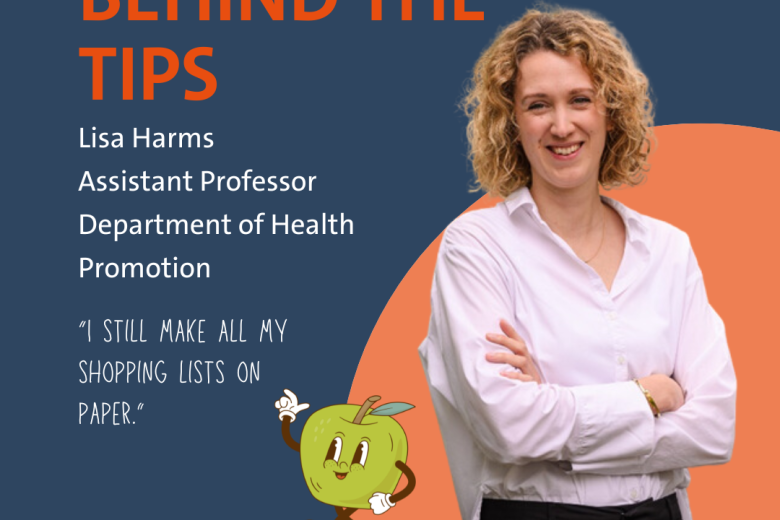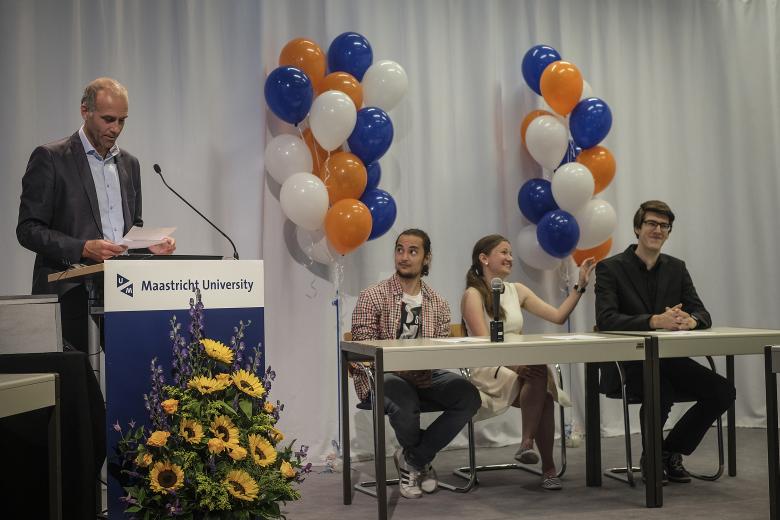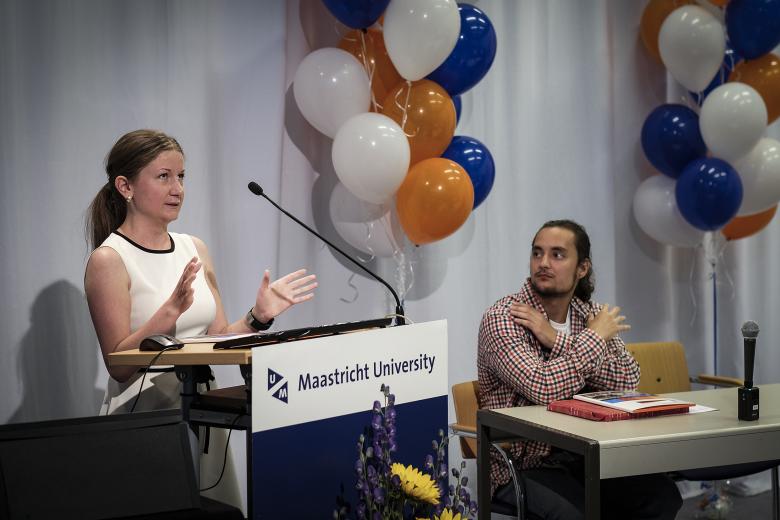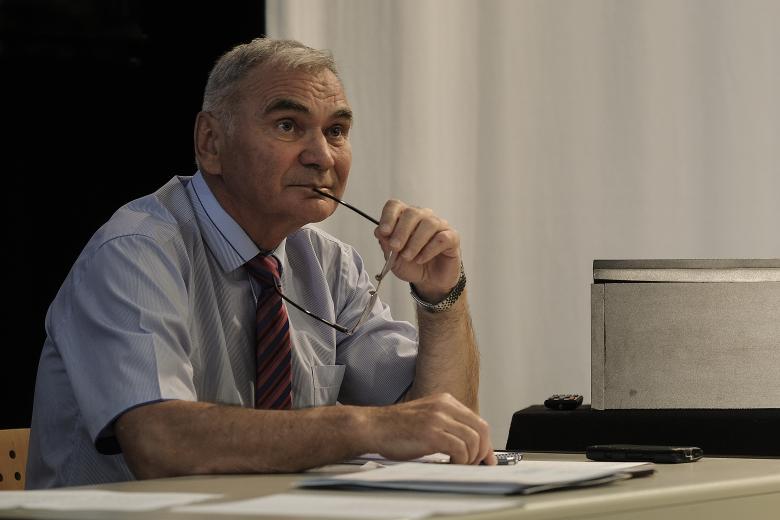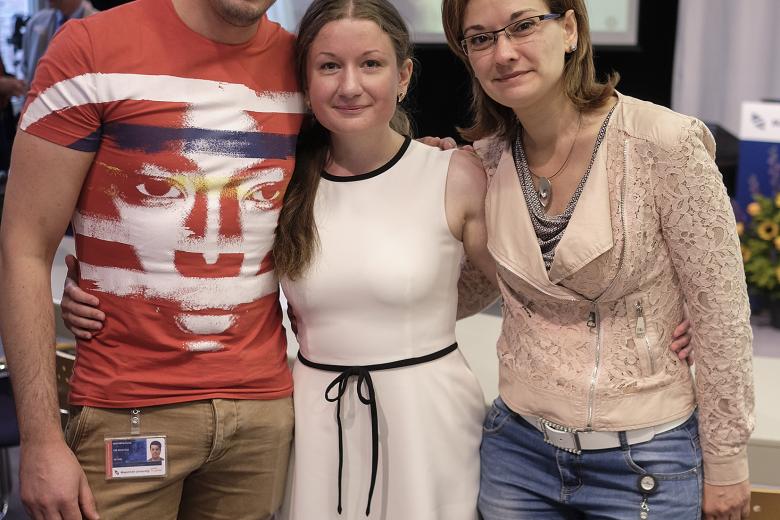First graduates of Biomedicine and Biophysics double degree programme
On 29 June 2017, it was the first time that a university in Russia and a university in the Netherlands performed their graduation ceremony together with a live stream connecting them. The reason for this was the graduation of one Dutch and two Russian master’s students of the Biomedicine and Biophysics double degree programme (DDP). In this programme they studied Biophysics for one year at the Russian Tomsk State University (TSU), and the following year they studied Biomedicine at Maastricht University (UM).
After receiving their UM master’s degree in Biomedicine, students Bram van Steen, Valeriia Gulaia and Dmitrii Starkov received their TSU master’s diploma in Biophysics out of the hands of prof. dr. Vladimir Demkin – the vice rector of TSU who had come over especially for this event. Then the double degree students could witness five fellow TSU students in Physics getting their master’s degree in Russia. The complete graduation ceremony was held in a film studio at UM, so that all participants from both sides of the Oeral could attend each other’s ceremony via live stream.
‘Best of both worlds’ synergy
The origin of the Biomedicine and Biophysics double degree programme lies in the celebrations of 400 years of Dutch-Russian friendship in 2013. As part of stimulating cooperation between the two countries, TSU and UM started a cooperation with respect to education. The added value of the DDP for students is that they are able to obtain two Master of Science degrees in considerably less time than it would take to earn them separately. “But also”, Wilfred Germeraad (master coordinator Biomedical Sciences at UM) says, “the students get the best of two worlds, with the synergy of TSU’s expertise in fundamental sciences and UM’s knowledge in biomedical science.”
When he directs the DDP students in his graduation speech, Germeraad refers to this ‘best of both worlds’ synergy as follows: “You are in a unique situation compared to your fellow students, because you do not only know basic physics principles, you can also apply them in the biomedical field. You can use that knowledge for developing better medical treatments, apply it for novel improved diagnostics, or for monitoring if installed medications are effective. Another advantage you have is that you worked in labs with people from different countries, where everyone speaks English with a funny accent, like me. To be exposed to that will help you later on in life, when you travel the world visiting conferences and meeting scientists from other countries.”
Barriers
The language barrier is a problem in itself. In the future, some TSU teachers will receive training in English. The English language proficiency of Russian students Valeriia and Dmitrii wasn’t very good either when they arrived in Maastricht. But during their graduation ceremony they addressed the audience in good English. Dmitrii: “Two years ago I could not imagine me studying in Maastricht in English. But I managed it!” Herman Kingma, who is involved in the programme as chairman of the UM taskforce Russia, saw that too: “Now you can speak in English with everyone, and more importantly you can communicate with your fellow scientists and work with them in the lab. The double degree programme is a good example of bridging different cultures, especially in education and science. And these three students have crossed that bridge successfully, we are very proud of them.”
Relevant links
Also read
-
Emma Goslin - health goes beyond medical research
Emma has always been interested in health in the broadest sense of the term. “Health goes beyond medical research and care. It is shaped by politics, international health organisations, transnational threats such as climate change, and much more.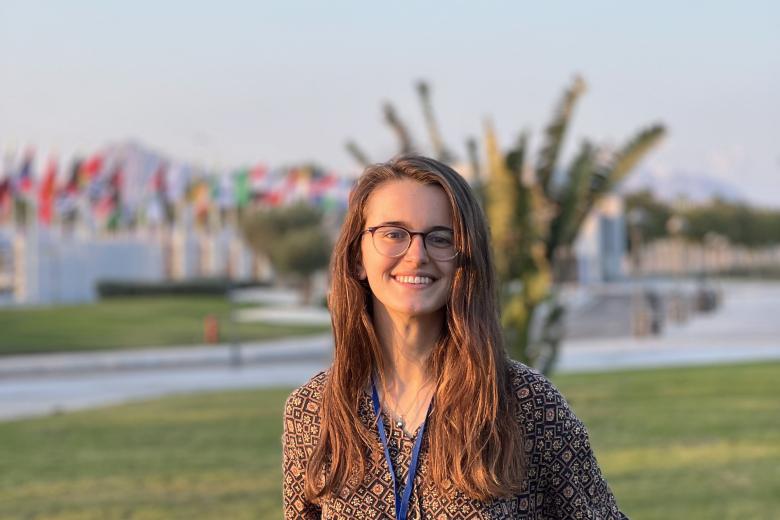
-
Ellen Bastiaansen - the new HPIM student
A new generation of young professionals is stepping up to the challenges that the healthcare sector faces today. Including Ellen Bastiaansen, a master’s student in Healthcare Policy, Innovation and Management with a background in prevention and mental health.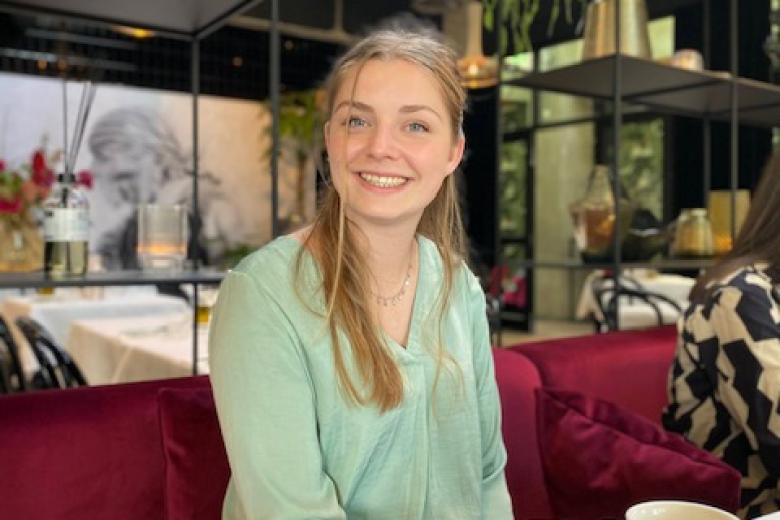
-
Evidence-based health tips for students: supermarket psychology
In the upcoming months, we’ll share tips on Instagram for our students on how to live a healthier life. Not just a random collection, but tips based on actual research happening at our faculty. The brains behind this idea are L ieve Vonken and Gido Metz, PhD candidates at CAPHRI, the Care and Public...